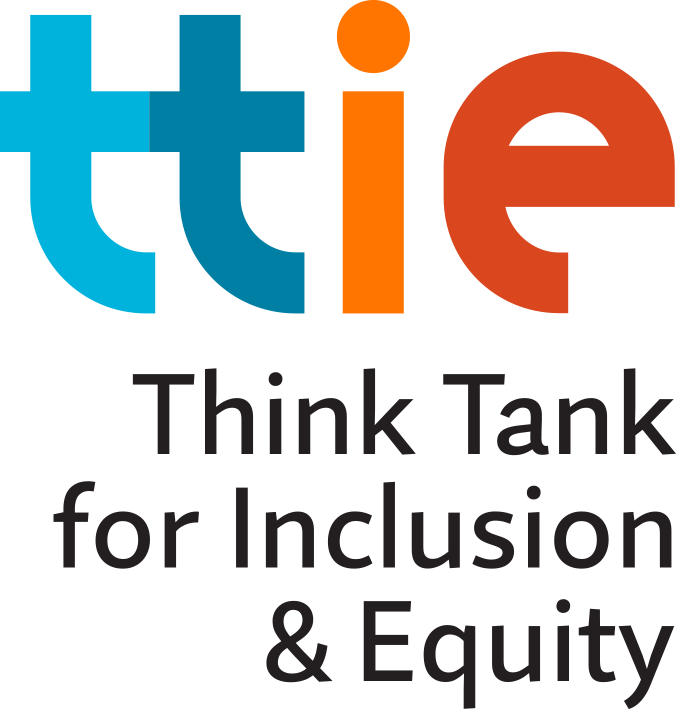Rebuilding With Intention: Strategies for an Equitable Future
If you want to read TTIE’s thoughts on what the 2023 negotiations mean for DEIA, you can find them here.
The industry is in a pressurized flurry of staffing and deal-making. Moving in haste often leads to choices that reflect biases and misconceptions, especially around race, gender, ability, and sexuality. This is the moment to ground ourselves and move with intentionality. We have compiled recommendations from our own research, feedback from our Showrunner and Executive Brain Trusts, and our wider community.
Our progress toward inclusion has taken quite a few hits both inside the industry and in the wider landscape. Let’s work to keep our core values front and center. Taking these simple steps could have a meaningful impact. Please share this information with your colleagues.
If you’d like to see something added here, please email info@writeinclusion.org with your suggestions.
STAFFING
Think Inclusively First
Showrunners and Executives: Prioritize hiring writers from historically excluded communities (women, BIPOC, LGBTQIA+, Disabled people) before you hire anyone else. Have more than one person from those communities in place before going to your usual network. Ensure diversity on a team before staffing money is spoken for.
…And At All Levels
When seeking historically excluded writers, don’t just think pipeline or lower level. This town is full of gifted, experienced writers with varying identities who have already found their writers room voices and can help you tell better stories.
Expand Your Circles
Showrunners and Executives: Don’t just rely on agents and managers. Expand how you look for new writers, especially those with intersectional identities. Try using the following:
Organizations like Inevitable Foundation, Coalition for Asian Pacifics in Entertainment (CAPE), WIF, etc.
Affinity groups like Black Women Writers Who Brunch (BWB), La Lista, South Asian Writers Committee, etc.
Databases of writers from historically excluded backgrounds
WGAW’s Find a Writer “advanced” search mode to find writers by experience level and background
Grassroots connections by word of mouth
Accessibility
Consider a hybrid or Zoom room to ensure immuno-compromised folks can work safely. Explore hiring disabled writers as opposed to relying solely on consultants. Inevitable Foundation has compiled comprehensive resources on their site for identifying and working with disabled writers. They also have a powerful “Accommodations Calculator” to help understand the costs of supporting disabled writers in the room and on set.
IN THE ROOM
MENTORSHIP IS MEANINGFUL
This is an inflection point and mentorship is particularly powerful as writers of all levels navigate the “after” landscape. Check in with existing mentees. In rooms, create an environment where upper levels are invested in their mentee’s success. Consider the following ways to build mentorship into your rooms:
Assign upper levels to mentor mid and lower levels, pairing historically excluded writers when possible.
Lower levels ideally meet with their mentors 2x a week at first, with weekly check-ins after they have acclimated.
Ensure that middle level mentees are gaining skills to be tomorrow’s leaders.
Actively train mentees for pre-production and production responsibilities.
Provide an open line of communication to provide a helpful space to work out any issues, sensitive or otherwise, should they arise.
Be Prepared For Pushback
You may recall seeing changes in diversity departments before and during the strike. We’re also seeing promises from the powerful to "quiet the noise of the culture wars." These are signs of a cultural backlash to the #MeToo, #BlackLives Matter, and #StopAsianHate movements. It also reflects an avoidance of conversation around the anti-LGBTQIA+ legislation that’s sweeping the country.
Be the one who speaks up in the room when historically excluded voices are quieted and their stories are discounted. Use our #WriteInclusion factsheets to bolster, inform, and inspire inclusive, authentic storytelling. Each factsheet contains a list of consultants like Storyline Partners who can be solid support even when hiring diversely.
MAKING THE BUSINESS CASE: USEFUL STATS
The 2021 McKinsey report, “Black Representation in Film and TV”, found that “by ignoring the systemic racial inequities that plague the film and television business, Hollywood is leaving $10 billion annually on the table.”
This is a huge missed opportunity.
Nielsen confirms that audiences agree. In their “Attitudes on Representation on TV” Survey, 87% of respondents said they are “interested in seeing more content featuring people from outside their identity group.” In addition, “a third of audiences [from historically excluded backgrounds] feel that there is not enough content featuring people from their identity group on TV.”
TV writers want to provide this content. 96% of respondents in TTIE’s 2022 Behind the Scenes Report said we need to tell more inclusive stories.
But more than a quarter of audiences from historically excluded backgrounds “say that representation [of their identity group on TV] is inaccurate.” (Nielsen’s “Attitudes on Representation on TV” Survey)
Diverse voices tell better and more inclusive stories.
To capitalize on this, we need more diverse voices in our writers rooms. If you look at hiring data, though, those voices are still not well represented.
Source: WGAW Inclusion & Equity Report 2022 | NB: Source does not report on all genders
Source: WGAW Inclusion & Equity Report 2022 | NB: Source does not report on all genders
There is a HUGE OPPORTUNITY FOR GROWTH here.
OVER $10 BILLION ANNUALLY!
The dollars make sense. There is a strong business case for inclusive content penned by historically excluded scribes. But there is also a strong societal case. Hollywood’s stories have a significant impact on culture here and around the globe. All too often, that impact has hurt historically excluded communities. A change in storytelling strategy could both increase studios’ revenue and positively impact how historically excluded people are treated in the real world.


